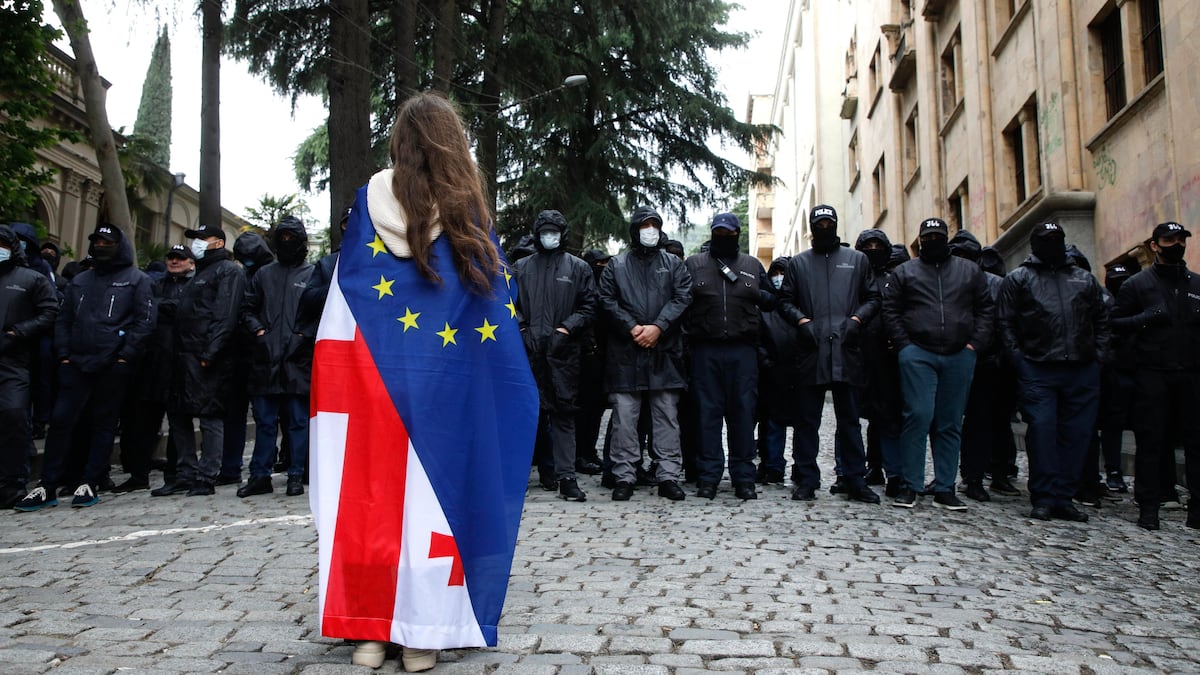Georgia challenges EU once again by promoting Russian-inspired legislation against LGBTI community International

The authorities of EU candidate country Georgia have introduced a bill to veto gay marriage, sex change operations and all public appearances of LGTBI people. The measure has been announced by the ruling party, Georgian Dream, just weeks after the party definitively approved its controversial law on foreign agents and created a new insurmountable obstacle in the country’s accession process to the EU. The party, founded by oligarch Bidzina Ivanishvili, thus once again mimics the Kremlin’s repressive laws and demolishes a bridge with the community bloc, as well as dealing a new blow to Russia.
The Speaker of the Georgian Parliament, Shalva Papuashvili, has announced a package of eight measures, called: “On family values and protection of minors”, Unlike the Russian “law against LGBTI propaganda”, the Georgian ruling party intends to process in one stroke and in a few months the entire set of repressive regulations that the Kremlin has approved between 2013 and 2023; starting with a ban on talking about homosexuality in front of minors and ending with the persecution of LGBTI groups considered extremist movements.
Measures promoted by Georgian Dream include prohibiting the adoption of children for couples “with a non-traditional sexual orientation” and refusing gender changes in official documents. Similarly, the government will criminalize all public statements promoting “non-traditional relationships”, including advertisements and media publications depicting relationships between two people of the same sex.
“Our goal is to protect family values and future generations from the irreparable consequences of pseudo-liberal propaganda,” said Papushvili, a senior official of the Georgian Dream, a party that blames the alleged conspiracy to invade Ukraine on a “world party of war” rather than its President, Vladimir Putin, or Russia, with which it has strengthened its ties in recent years.
The EU warned in May that it would block Georgia’s accession if it did not withdraw the controversial foreign agents law. Although Georgian Dream continues to desire association with the Community bloc – according to surveys, 80% of the population supports it -, it has also promoted this repressive measure to safeguard its supremacy against a fragmented opposition in a political system that gives practically all power to the formations with the most votes.
The foreign agent law has helped Russia ban and fine NGOs and activists who work outside its official line. The Georgian version is currently limited to organizations and people who receive more than 20% of their funding from abroad, though the executive can force them to report all their contacts.
Join EL PAÍS to follow all the news and read without limits.
Subscribe
For the Venice Commission, an advisory body to the European Council, the foreign agent law already represents a major obstacle to the country’s accession to the EU. “Its restrictions on rights, freedom of expression, freedom of association and privacy do not meet the requirements of legality, legitimacy necessary in a democratic society,” according to a May 21 report.
To this setback is now added another absolutely discriminatory law – for example, the UN insists that gender change is a right – and which replicates point by point the measures with which the Kremlin has silenced the LGTBI minority, policies that have only gotten worse since the imposition of its war against Ukraine. Indeed, this Tuesday it was made public that the American language platform Duolingo has sent a letter to the Russian internet watchdog, Roskomnadzor, informing it that it has removed from its portal “all materials promoting non-traditional sexual relations.”
The ruling party anticipates that the process of the bill against the LGBTI community will last until after the Georgian parliamentary elections in October. These elections will be decisive for Georgia’s future: the country’s president Salome Zourabichvili has called on the entire opposition to unite against Georgian Dream. Elected by citizens in 2018, Zourabichvili’s veto of the foreign agent law was overturned by parliament on May 28.
“Today, when the shadow of Russia looms over us, cooperation and reconciliation with Europe is the true path to maintaining and strengthening our freedom and peace,” Zourabichvili said in late May, presenting his plan to halt the Georgian Dream and reform the country’s political system. It won’t be easy, with the ruling majority today having 83 seats compared to the opposition group’s 55, though it has been bolstered by a human tide of protests against the executive’s legislative aggression.
Follow all international updates Facebook And Xor in Our weekly newsletter,
Subscribe to continue reading
Read without limits
,
(TagstoTranslate)Georgia
